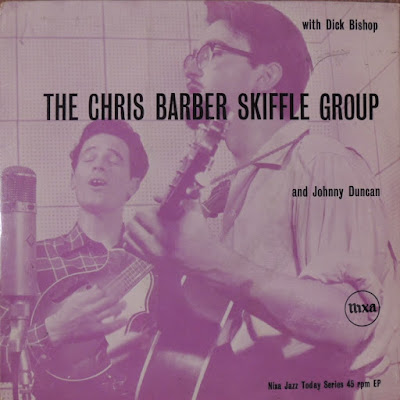Howard Grimes - the Bulldog's story
Howard Grimes is one of the greatest drummers of all time and his metronomic backing behind Memphis artists such as Al Green, Syl Johnson and O V Wright is instantly recognisable. He was nicknamed the Bulldog by Willie Mitchell, who said 'When a bulldog get mad, you hear him knockin’ over shit, he don’t want to be bothered. I can hear you comin’, Howard, I know when you’re comin’, you put that foot down and clamp on that beat.' His autobiography 'Timekeeper: My Life In Rhythm', written with Preston Lauterbach (whose earlier book 'The Chitlin Circuit' is essential reading for lovers of soul and R and B) is due out in July. Howard's drumming career goes back to the earliest days of Stax and he played on such classic tracks as 'Gee Whiz' by Carla Thomas and 'You Don't Miss Your Water' by William Bell, but it's his work with Willie Mitchell at Hi that really made its mark. He played on Willie's 'Soul Serenade' and on tracks such as 'A Nickel and Nail' and 'Ace of Spades' by OV Wright - a man who he describes as the 'the finest vocalist I ever worked with'. He was the man keeping the beat on Ann Peebles' 'I Can't Stand The Rain', Denise Lasalle's 'Trapped By A Thing Called Love', 'Get Your Lie Straight' by Bill Coday and 'We Did It' by Syl Johnson. But it was his work behind Al Green, for whom he shared the drum kit with his friend Al Jackson, that he is perhaps best known. 'Tired Of Being Alone', 'Take Me To The River' and 'Love and Happiness' all featured Howard's drum work. Howard presents a gritty account of his life in Memphis, with violence, drugs and women problems never far away. He is less than complimentary at times about Al Green and Hi Records guitarist Teenie Hodges and even Willie Mitchell. He recalls how Johnny Baylor, who managed Luther Ingram and who screwed Isaac Hayes over after he had brought him into Stax, took a shine to him when he visited Hi and gave him his card, saying 'I Kill For A Living'. Memphis was a violent town. Howard's brother was murdered as was Al Jackson. And then Willie sold Hi Records and Howard was out of a job. His marriage had broken down and he became homeless. Howard says that despite problems between them Al Green did what he could to help and he says OV Wright never turned against him. He played with OV in Japan, but OV's drug and alcohol problems worsened and he died two years later. By the end Willie had to carry him into the studio to do his sessions, he recalls. Racism was another problem and he recalls a tour he made with Paul Revere and the Raiders when singer Mark Lindsay refused to perform because of racism towards Howard. Howard eventually found happiness with a new wife and his belief in God. The Hi Rhythm Section got back together in a tribute to O V Wright in 2009 with Otis Clay and the Masqueraders singing his songs. They played at the Ponderosa Stomp in New Orleans and he was invited by keyboard player Archie Turner, known as Hubbie, to play at Wild Bill's juke joint in Memphis. Hubbie introduced him to Scott Bomar who had formed the Bo-Keys with former Stax and Hi musicians. Howard says: 'I’m not angry with Stax. I’m not angry with Hi. But Scott Bomar at Electraphonic is the only person who’s ever paid me right.' His final words: 'When Elvis lifted Memphis music, we already had so much to work with. Nightclubs were full of talent. The schools developed talent. The fans wanted to come out and hear the best. That already existed before the big business side of things happened. Elvis’s hit records inspired studios to open up. Those studios found their own sounds, and made their own artists. The money and success that followed ended up being bad for the music. Greed, corruption, and violence killed us. It killed Al Jackson Jr. It killed Stax. It killed Hi Records. If we could have stayed on peace and togetherness, we’d still be on top.' The photo below shows Howard during one of the interview sessions at the Ponderosa Stomp in 2015 when he played with other members of the Hi Rhythm Section.










